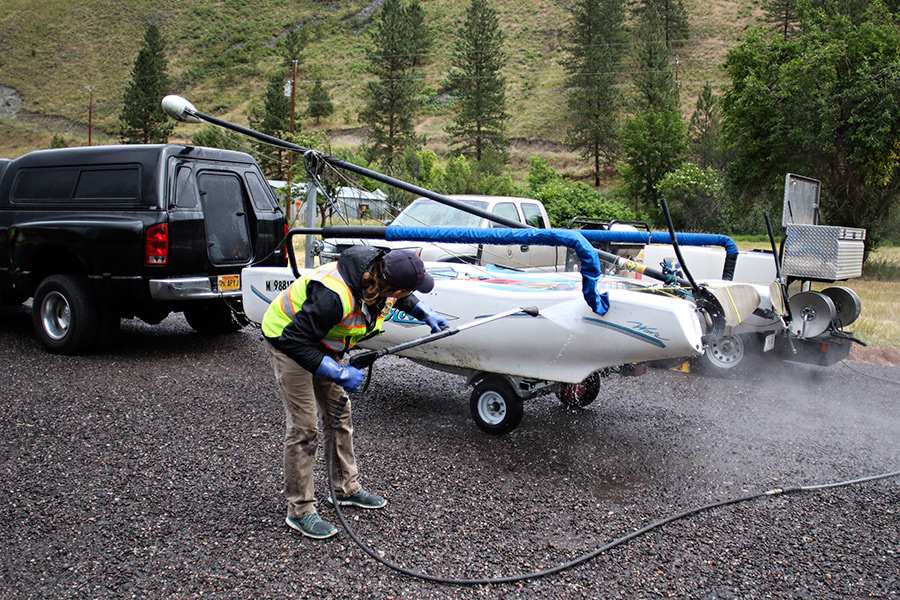A bill advancing through the Montana Legislature would require wakeboarding boats to undergo a mandatory decontamination process to curb the threat of aquatic invasive species, and it places the financial onus for the procedure on the boat owner.
House Bill 608 establishes a $50 fee for boats with ballasts or bladders entering the state or crossing the Continental Divide into the Columbia River basin. The boats, which are designed to enhance the vessel’s wake for water-skiers and wakeboarders, are capable of holding hundreds of gallons of water and are more difficult to inspect.
The bill’s sponsor, Rep. Joe Read, R-Ronan, said he introduced the bill because it targets boats most likely to transport potentially harmful aquatic invasive species. The boats carry reserves of water in internal bladders that don’t fully drain, making them more likely than other vessels to carry enough standing water to transport live invasive species.
“We have a special boat that kind of slips through the loopholes of our process requiring clean, drain and dry,” Read said. “These boats can carry a tremendous amount of water with them even when the tanks are pumped out, and it makes a perfect habitat to invasive species like the quagga mussel.”
The bill makes an exception for boat owners who can prove they haven’t launched in any water body for the previous 30 days.
According to Thomas Woolf, the Aquatic Invasive Species Bureau Chief for Montana Fish, Wildlife and Parks, the agency inspected more than 3,000 ballast boats last year and estimates 2,000 boats would be subject to the proposed fee. Those boats would be redirected from a field station to a regional office for the decontamination, which involves a hot-water flush of the ballast or bladder.
According to estimates by legislative staff, the fee could generate $100,000 annually. Other Western states charge decontamination fees for ballast boats.
The bill passed out of the House Natural Resources Committee on an 18-4 vote and received strong support.
“We believe this is just a common-sense bill,” Colin Cooney of Montana Trout Unlimited said. “We’re already required to clean off our other boats, vessels and rafts to make sure they are rid of invasive species. The ballasts and bladders of these boats can be the perfect breeding ground for invasive species, so this just makes sense.”
Erik Hanson, the aquatic invasive species coordinator for the Confederated Salish and Kootenai Tribes, said ballast boats have presented a challenge for states trying to address the problem of aquatic invasive species across the West.
“Wakeboard boats are a difficult issue that Western states are struggling to deal with,” Hanson said. “Ballast tanks cannot be drained and boat owners don’t have the ability to flush the systems on their own.”
Eileen Ryce, fisheries division administrator for Montana Fish, Wildlife and Parks, said ballast boats that arrive at an inspection station that isn’t set up to handle them will be padlocked to ensure they can’t launch in a body of water and diverted to a regional office.
